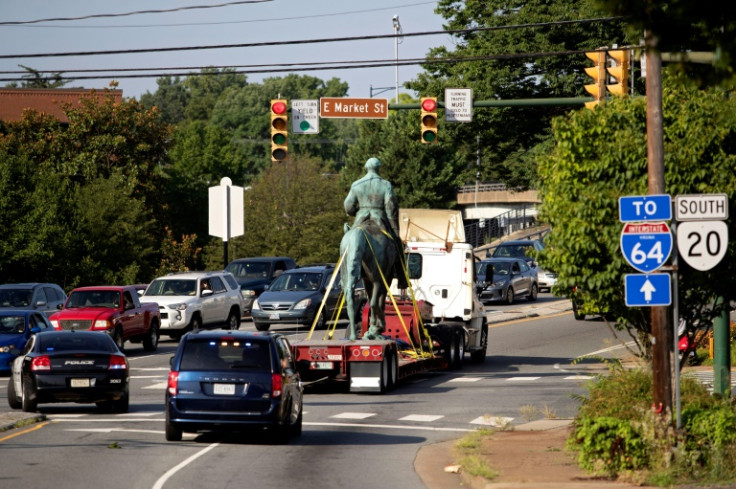
A slim majority of Americans (52%) support keeping the history of the Confederacy alive, while 44% oppose this, according to a new poll by the Public Religion Research Institute.
The figure is almost identical to that of a 2022 survey, the organization said. And as it's the case with several other aspects of politics, economics and culture, there is a deep chasm in Democrats' and Republicans' responses.
Over eight in ten Republicans (81%) support preserving the legacy and history of the Confederacy, compared to 30% of Democrats. Independents have increased their support for preservation, with 52% favoring this compared to 46% in 2022.
The difference is also large when looking at ethnicity. Black Americans are the only group where a majority doesn't support preservation, with one in four respondents providing such an answer. This compares with "58% of White Americans, 55% of multiracial Americans, and 54% of Hispanic Americans," according to the poll.
Americans from Southern states, where the Confederacy was present during the XIX Century, were more likely to support preservation efforts (58% to 50%). Looking at age groups, "Gen Z (41%) is the only generation without majority support for preserving the legacy of the Confederacy, compared with two-thirds of the Silent Generation (62%), 58% of Gen X, 56% of baby boomers, and 51% of millennials."
When looking at the reasons for people's answers, the poll provides more nuance. While about one quarter of Americans (26%) supported preserving monuments as-is, a larger proportion (35%) said they should add information on the history of slavery and racism. Moreover, 28% said monuments should be removed from public spaces and put in museums and 9% that they should be destroyed.
About half of Republicans support leaving the monuments where they are, compared to a quarter of independents (25%) and just 8% of Democrats.
Overall, most respondents support efforts to discuss the history of slavery and discrimination in the country (90%), "create more inclusive public spaces (79%), recreate or reimagine public spaces to better represent everyone (74%), or repair past damage done by violence or discrimination (72%)."
However, they are less likely to support renaming public schools named after historical figures who supported slavery and discrimination (50%). An initiative to this end garnered national attention this year, when the school board of Virginia's Shenandoah County voted to restore the names of two Confederate leaders to two schools.
The decision, a 5-1 vote, reversed a 2020 vote that changed the names amid the racial justice protests that rocked the country following the murder of George Floyd.
The reversal was prompted by conservative group Coalition for Better Schools, which asked officials to change back the names as "revisiting this decision is essential to honor our community's heritage and respect the wishes of the majority."
© 2025 Latin Times. All rights reserved. Do not reproduce without permission.




